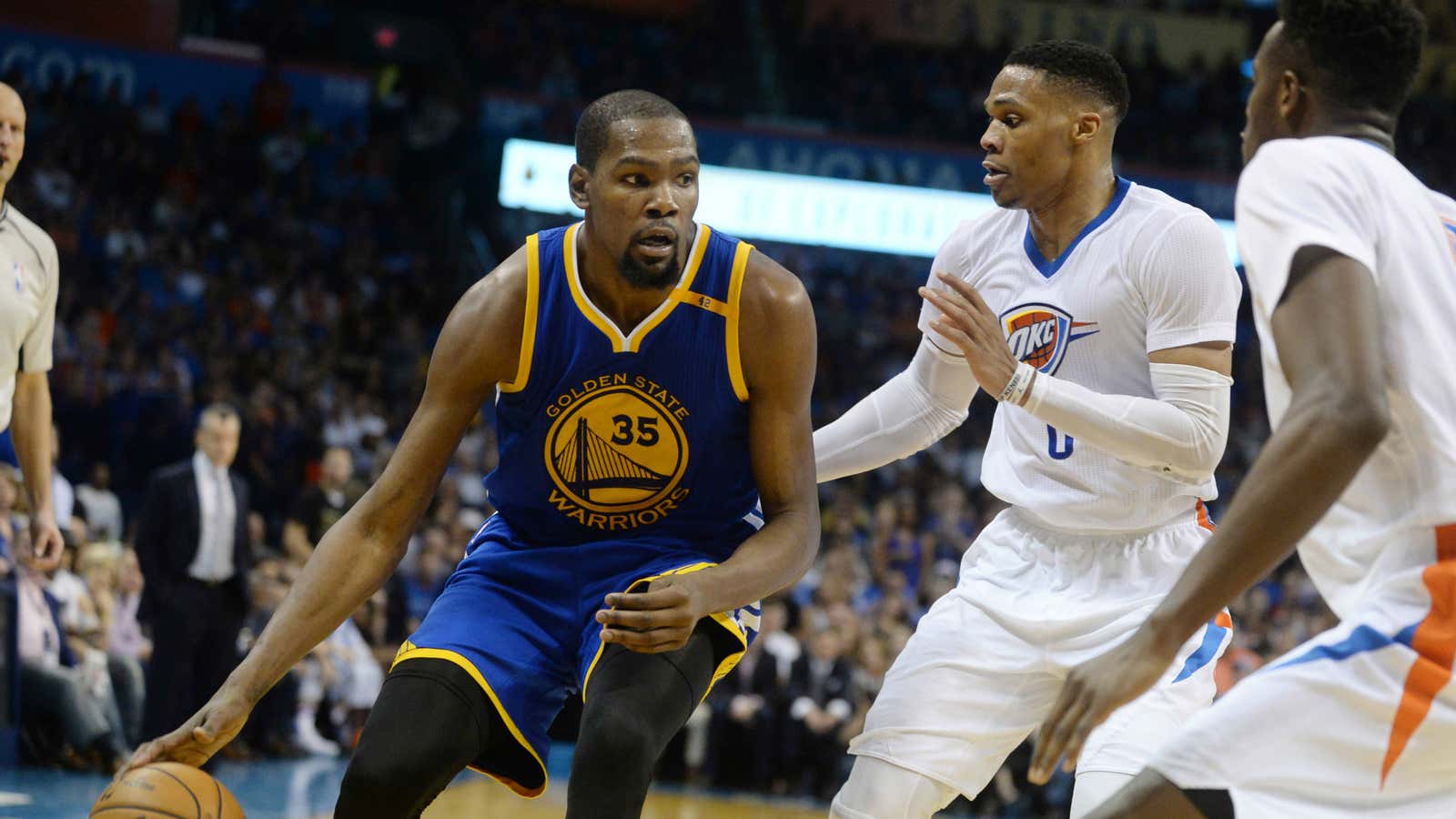In 2016, basketball superstar Kevin Durant decided to take his talents to California. After years playing for the Oklahoma City Thunder, Durant signed with the Golden State Warriors in order to play a different brand of basketball, experience a new city, and invest in nearby Silicon Valley. The move was wise—he won a championship in the first season with his new team.
But would he have done it all again if he had he known about Republican tax reform?
“If [the Republicans] get rid of the deduction for state and local taxes, it is going to have a big effect on athletes who play in California and are California residents,” says Sean Packard, Director of Tax for wealth management firm OFS Wealth, who serves as the accountant to a former NBA MVP he asked remain nameless. “They pay a crapload of state taxes out there.”
The Republican-led House and Senate have passed tax reform bills that will have significant effects on professional athletes. Lawmakers probably didn’t have these young millionaires in mind when crafting the legislation, but the impact on athletes’ incomes is a good illustration of what’s in store—at a smaller scale—for millions of well-heeled taxpayers across the country.
Like Packard says, the change that is most likely give a edge to players on certain teams is the near elimination of the state and local tax deduction (SALT), a deduction that most directly benefits high-income earners in high-tax states. Salaries offered by professional sports teams in high-tax states like California and New York have always been worth less than the same salary in states without income taxes, like Florida and Texas, but getting rid of the deduction could exacerbate the difference.
Using the Wall Street Journal’s GOP Tax Plan Calculator, we conservatively estimate that the average player NBA player, who has an annual salary $6.5 million, would pay at least an extra $40,000 more in taxes in 2018 playing for a team in California versus one in Florida due to tax reform—assuming they are single with no children. That’s in addition to likely losing the ability to deduct unreimbursed employee business expenses, which athletes typically apply to their agent fees, union dues, and payments made to trainers in the offseason.
Still, Packard says that for most players the thing that matters most is whether there is a cut to the top marginal income tax rate in the final bill. For players in major professional sports leagues, most of their income falls in the top income tax bracket. The Senate version of the bill reduces that top rate to 38.5%, from 39.6%. This would be a boon for players, possibly more than making up for lost deductions.
And for the most famous athletes who receive lots of endorsement money, like LeBron James, it may not matter what happens to income tax rates at all. These superstars will try to take advantage of the likely cut in the tax rate for pass-through income—money made by businesses, often small ones, that that are not C corporations. Many players set themselves up as a limited liability corporation (LLC) or S corporation for the purpose of receiving non-salary income. The House plan would reduce the taxes for these types of pass-through businesses from 35% to 20%; the Senate wants to leave the first 23% of pass-through income untaxed. Either way, the reduction is likely to save “King James” a lot of money.
Finally, like all rich people, athletes in major sports leagues will also benefit from a lower corporate tax rate. The wealthy are more likely to own stock, and thus benefit from reduced corporate taxes in the form of higher dividends.
When a Republican congressional committee released a rationale for their tax reform plans (pdf), the document included a reference to Durant’s teammate, Stephen Curry: “Our legislation will ensure this much-needed tax relief goes to the local job creators it’s designed to help by distinguishing between the individual wage income of NBA All-Star Stephen Curry and the pass-through business income of Steve’s Bike Shop.”
Curry responded wryly.
Although Curry will be hit hard by the loss of deductions for state and local taxes, he may end up ahead—as will many other millionaires who aren’t blessed with his jump shot—because of more generous stock dividends and a lower tax rate on non-salary income. For NBA fans, the good news is that Curry, Durant, and others probably won’t have to find another job or move to another state for tax reasons. But the bad news is that the tax plan’s potential to widen the budget deficit seems like a slam dunk.
